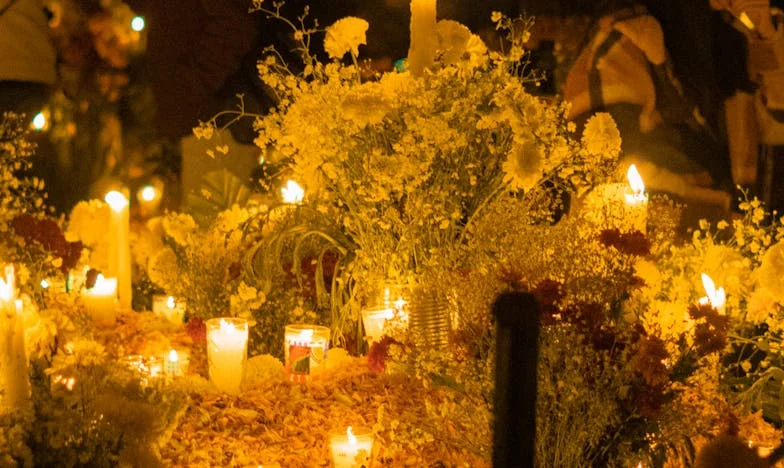Fractured Pride: A Daughter’s Dilemma
“Well, sweetheart, have you thought about it?” My mother’s voice sliced through the phone, sharp and sweet as lemonade left out in the sun. “Yesterday I saw this gorgeous Cadillac—white, leather seats. Absolutely stunning. It was only $47,000!”
I pressed my palm to my forehead, shutting the laptop I’d been using to review medical bills. The kitchen was dark except for the glow of the fridge, humming behind me. The house was quiet, too quiet for a Thursday night—Zoe’s fever finally broke, and my husband, Dan, had taken her upstairs to sleep.
“Mom,” I sighed, letting the word drag out. “We’ve talked about this. We still have a mortgage. Zoe’s been sick every month since January. I just can’t…”
She didn’t let me finish. “Marianna, don’t be dramatic. You always find a way to make things so complicated. When I was your age, I already had three kids, and your father never let us worry about money.”
I bit back the words. Dad was gone now, three years in the ground and still looming over every conversation like a shadow. I could hear the loneliness in her voice, undercutting her pride. But all I could think about was the stack of insurance claims on my kitchen table, the last of our savings bleeding out in copays and deductibles for Zoe’s asthma.
“We’re not in the same situation, Mom,” I said, trying to sound gentle. “Dan and I have to be careful. Maybe next year, okay?”
A brittle silence. Then, “You always have an excuse, Marianna. I just thought you’d want your mother to have something nice for once.”
I closed my eyes. I could see her now—Tamara Winters, sixty-three, still beautiful in her own way, with her perfectly set hair and wardrobe of pastel cardigans. She’d married my father young, never worked outside the home, and now, widowed and restless, she saw luxury as proof that life was still worth living. That she was still worth something.
I remembered a time when her pride was something I admired. Now it felt like a weapon, turned against me every time I said no.
That night, I barely slept. I lay next to Dan, listening to Zoe’s soft breathing through the baby monitor, my mind spinning. Was I being selfish? Was it really so impossible to help my mother, just this once?
The next morning, I found Dan at the kitchen counter, scrolling his phone. “Your mom texted me,” he said, not looking up. “Said she hopes I can talk some sense into you.” He tried for a smile, but it didn’t reach his eyes.
I felt my cheeks flush. “She always does this. I just… I can’t keep giving, Dan. We’re stretched thin.”
He reached for my hand. “You’ve done enough. She needs to understand that.”
But understanding was never Mom’s strong suit.
Later that week, I picked up Zoe from daycare early after another coughing fit. The director handed me a stack of notes, concern etched in her face. “You might want to see a specialist,” she said gently. “If you haven’t already.”
By the time I got home, my phone was blinking with missed calls. Three from Mom. One from her neighbor, Mrs. Geller. I called her back as I unpacked Zoe’s medicine.
“Marianna! Your mother’s been crying all morning,” Mrs. Geller said, voice trembling with the thrill of gossip. “She says you don’t care about her anymore.”
I hung up, furious. The guilt was a living thing in my chest, squeezing until my breath came shallow. I drove to Mom’s house, Zoe in the backseat, her small face pale and tired.
Mom opened the door before I knocked. She looked smaller than I remembered, her cardigan hanging off her shoulders. She hugged Zoe, who clung to her, and then turned to me with red-rimmed eyes.
“I don’t ask for much, Marianna. I just want to feel like I matter to someone.”
I sat on her worn couch, fighting back tears. “You do matter, Mom. But I can’t give you everything you want. I’m trying to keep us all afloat.”
She shook her head, lips trembling. “You think I’m selfish. But all those years, I gave up everything for this family. Now I’m old, and all I have is you.”
The words hung in the air, heavy and impossible.
That night, I stayed long after Zoe fell asleep on the couch. I let Mom talk about Dad, about her fears, about the ache of waking up alone. I didn’t promise her a new car. I promised I’d come by more often. I promised to listen.
But when I drove home, the guilt was still there, pulsing under my skin. I couldn’t shake the feeling that no matter what I did, it would never be enough—for her, for Zoe, for me.
Sometimes I wonder: How do you love someone without losing yourself? How do you honor the past without sacrificing the future? Maybe there’s no easy answer. But I hope, one day, we find peace.
What would you have done in my place? Where do you draw the line between love and duty?
